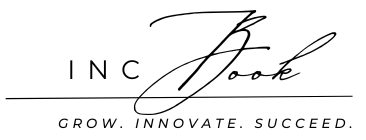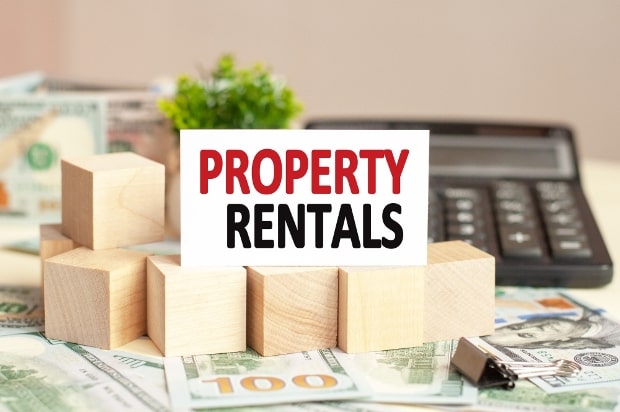Effective property management is crucial for maximizing rental income, maintaining property value, and ensuring tenant satisfaction. As the rental market becomes increasingly competitive, landlords and property managers must adopt best practices to stay ahead. This article delves into the key strategies and tips for successfully managing rental properties.
Understanding the Basics of Property Management
Before diving into specific practices, it’s essential to grasp the fundamentals of property management. This includes everything from property maintenance and tenant relations to financial management and legal compliance.
Property Maintenance
Regular maintenance is a cornerstone of property management. It ensures the property remains attractive to current and potential tenants, helps prevent costly repairs, and prolongs the property’s lifespan.
- Routine Inspections: Schedule regular inspections to identify and address issues early.
- Seasonal Maintenance: Prepare for different weather conditions, such as winterizing pipes or servicing HVAC systems.
- Emergency Repairs: Establish a system for handling urgent repairs promptly.
Tenant Relations
Maintaining good relationships with tenants can lead to longer lease agreements and reduced turnover rates.
- Effective Communication: Keep open lines of communication with tenants, addressing their concerns promptly and professionally.
- Tenant Screening: Implement a thorough screening process to ensure you select reliable and responsible tenants.
- Lease Agreements: Draft clear and comprehensive lease agreements that outline the responsibilities of both parties.
Financial Management
Proper financial management is vital for the success of any rental property.
- Budgeting: Create and adhere to a budget that includes all expected expenses and revenue.
- Rent Collection: Implement an efficient rent collection system to ensure timely payments.
- Expense Tracking: Keep detailed records of all expenses to monitor cash flow and identify areas for cost savings.
Legal Compliance
Staying compliant with local, state, and federal laws is crucial to avoid legal issues and potential fines.
- Fair Housing Laws: Familiarize yourself with fair housing regulations to prevent discrimination claims.
- Tenant Rights: Understand tenants’ rights and ensure your practices do not infringe upon them.
- Eviction Procedures: Follow the legal process for evictions to avoid unlawful detainer actions.
Advanced Property Management Strategies
Once the basics are in place, you can adopt more advanced strategies to enhance your property management practices further.
Utilizing Property Management Software
Technology can streamline many aspects of property management, making it more efficient and less time-consuming.
- Tenant Portals: Allow tenants to pay rent, request maintenance, and communicate with management online.
- Automated Systems: Use automation for tasks such as rent reminders, lease renewals, and maintenance scheduling.
- Data Analytics: Leverage data to track performance metrics, tenant behavior, and market trends.
Enhancing Property Appeal
To attract and retain high-quality tenants, your property must stand out in the market.
- Curb Appeal: Invest in landscaping and exterior improvements to make a strong first impression.
- Modern Amenities: Upgrade interiors with modern appliances, fixtures, and finishes.
- Energy Efficiency: Implement energy-efficient solutions to reduce utility costs and appeal to eco-conscious tenants.
Marketing and Advertising
Effective marketing is essential for filling vacancies quickly and maintaining high occupancy rates.
- Online Listings: Utilize popular rental listing websites to reach a broad audience.
- Social Media: Promote your properties on social media platforms to increase visibility.
- Professional Photography: Use high-quality photos and virtual tours to showcase your property.
Tenant Retention Programs
Keeping existing tenants happy can be more cost-effective than constantly seeking new ones.
- Incentives: Offer incentives for lease renewals, such as rent discounts or free upgrades.
- Community Building: Foster a sense of community through events and activities for tenants.
- Responsive Management: Show tenants that their concerns are a priority by responding quickly to maintenance requests and other issues.
Navigating Challenges in Property Management
Property management comes with its share of challenges. Here’s how to navigate some common issues effectively.
Dealing with Difficult Tenants
Difficult tenants can disrupt the harmony of your property and create additional work.
- Clear Policies: Establish and enforce clear policies regarding behavior and responsibilities.
- Conflict Resolution: Develop skills in conflict resolution to handle disputes calmly and fairly.
- Legal Action: When necessary, follow legal procedures to address serious issues such as non-payment or property damage.
Managing Vacancies
Vacancies can significantly impact your revenue. Reducing vacancy periods is crucial for maintaining profitability.
- Competitive Pricing: Set rental rates that are competitive within the local market.
- Prompt Turnover: Ensure quick turnaround times for repairs and cleaning between tenants.
- Flexible Lease Terms: Offer flexible lease terms to attract a wider range of tenants.
Handling Maintenance Issues
Maintenance problems can arise unexpectedly, requiring prompt attention.
- Preventive Maintenance: Regularly service major systems (plumbing, electrical, HVAC) to prevent breakdowns.
- Trusted Contractors: Build relationships with reliable contractors for quick and quality repairs.
- Maintenance Requests: Implement a straightforward system for tenants to submit maintenance requests.
Future Trends in Property Management
Staying ahead of industry trends can give you a competitive edge and prepare you for future challenges.
Smart Home Technology
Smart home devices are becoming increasingly popular among tenants for their convenience and energy efficiency.
- Smart Locks: Provide secure and convenient access for tenants and maintenance staff.
- Energy Management: Use smart thermostats and lighting to reduce energy consumption.
- Remote Monitoring: Monitor the property remotely for maintenance issues or security concerns.
Sustainability Practices
Eco-friendly practices are not only good for the environment but can also attract tenants who value sustainability.
- Green Building Materials: Use sustainable materials for renovations and repairs.
- Waste Reduction: Implement recycling and composting programs for tenants.
- Water Conservation: Install low-flow fixtures and encourage water-saving practices.
Virtual and Augmented Reality
Virtual and augmented reality can transform how you market and manage properties.
- Virtual Tours: Offer virtual tours to allow prospective tenants to view the property remotely.
- Augmented Reality: Use augmented reality to showcase potential upgrades or staged furniture.
- Remote Management: Utilize virtual tools for remote property management tasks.
Conclusion
Effective property management requires a combination of basic practices and advanced strategies to maximize rental income, maintain property value, and ensure tenant satisfaction. By focusing on maintenance, tenant relations, financial management, and legal compliance, while also adopting technology and staying ahead of industry trends, property managers can achieve long-term success.



